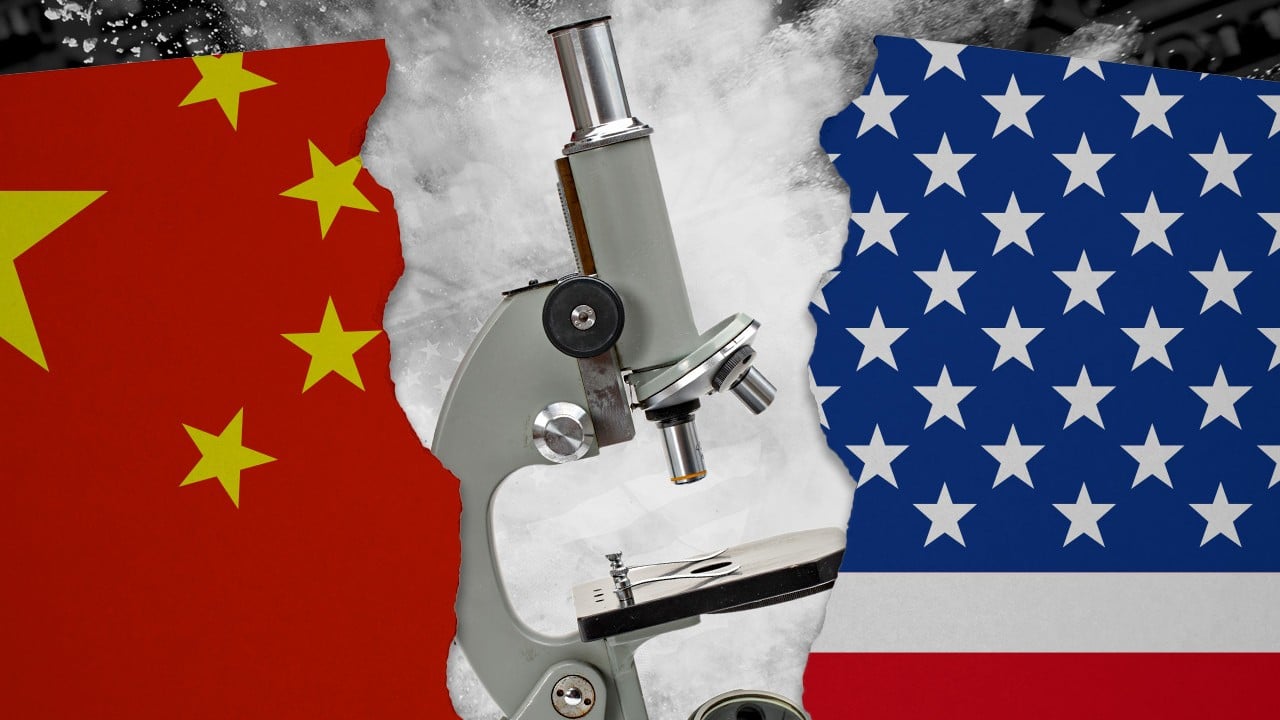
Exclusive | Shadow agents in China’s talent war help recruit outstanding overseas scientists to boost self-reliance
- A growing number of talent agencies are using low-key methods that stay firmly out of the spotlight in their global search for scientists
- China has been working hard to lure back outstanding talent in its push for science and technology self-reliance
This is particularly beneficial for domestic companies, according to one agent, as they often have trouble searching for overseas talent, on top of the fact some high-level positions are not publicly advertised.
With more than 10 years’ experience, the agent, who asked not to be named, told the Post such agencies began to grow in number after the launch of the Thousand Talents Plan (TTP) in 2008, which is regarded as the most prominent initiative to bring leading global scientists to China.
And despite growing geopolitical tensions, she said the agencies have thrived even more since 2018, when over the course of four years the US government prosecuted scientists with Chinese backgrounds who it accused of economic espionage.
It is unclear how many such agencies exist in China and around the globe. But the manager said they are increasing in number, though he did not specify whether that was a direct effect of the worsening political climate.
China has been working hard to lure back outstanding overseas talent in a bid to improve its science and technology self-reliance. It is a systematic drive involving local governments, agents, headhunting firms and even personal connections.
Some public, large-scale campaigns have dominated the show. But in recent years there has been a growing demand for agents who operate out of the spotlight.

According to an article published in Nature in 2018, over the course of its first 10 years of operation, TTP attracted more than 7,000 people.
Soon after the introduction of the US initiative, China took down the online list of TTP members and stopped promoting the talent programme.
The Zhejiang-based agency manager introduced his organisation as a semi-governmental institution that mainly offers three types of services. The first is to help the government search for the most suitable and qualified expatriates under various talent programmes.
Unlike regular headhunting firms that spot talent for corporations, the agency is strongly bound by the government, which pays them once they successfully recruit one person.
With generous start-up packages, facilities support and favourable policies, growing hi-tech companies is now highly encouraged in China. This agency also helps overseas scientists looking for opportunities to start up an entity to apply for these benefits based on their needs.
A Chinese biologist living near Boston who asked to be identified only by his surname Wang, recalled a time several years ago when Shi Yigong, president of Westlake University in the eastern province of Zhejiang, held a talk at Harvard University in which he expressed his intention of recruiting high-calibre scholars.
“This is impossible today, ” Wang said, explaining the US is much more wary of such “poaching” activities now, and Chinese scientists, except those who have a US Green Card, are largely restricted from entering the country, let alone trying to hunt for talent there.
Deteriorating relations have seen some new practices and regulations. The TTP has become a sensitive issue, and accordingly it has been restyled and is carried out in a more low-key way.
Those planning to work in China’s private or state-run companies under the TTP are now in the candidate pool of schemes like Qiming and Changcheng projects, the agent said.
The Young Thousand Talents programme that was established in 2010 to recruit and nurture early-career expatriate scientists returning to China after receiving PhDs abroad has been rebranded as Distinguished Young Scholars (Overseas).
Meanwhile, the manager said confidentiality reaches new heights in protecting applicants who are undertaking cutting-edge research and technological development. For example, sensitive materials will not be transferred online, such as through social media platforms.
Unless there are some specific personal reasons, senior researchers of Chinese descent are hesitant and circumspect about [moving back]
A Chinese nanotechnology scientist, who has worked in the US for more than two decades, told the Post on the condition of anonymity that although offline cross-border activities in academia have been made harder, he feels efforts to bring foreign-trained scientists back to China are even more active.
He has received numerous emails over the past six months inviting him to attend online forums – a way to congregate expat jobseekers and identify potential candidates for universities or research institutions.
“I could not figure out a precise number of the emails, but I estimate there is about a 50 per cent increase compared to previous years,” he said, adding that he has also been approached by headhunting firms on social media platforms, such as LinkedIn.
Both the agent and the manager said talent programmes operate at various levels of government in China, with more options than ever before to target talent of different ages and years of experience, including young PhDs, mid-career scholars and well-established experts.
However, all of the scientists interviewed pointed out that the most prestigious figures, either in academia or in industry, are much more likely to make career changes through personal connections, instead of these agents.
“As far as I know, the best brains are recruited through an invitation from their trusted close ones,” Wang, the biologist, said. Chief researchers or leading entrepreneurs will not apply for a position advertised online.

Neuroscientist Fu Xiangdong, for example, who was forced to resign from the University of California, San Diego earlier this year due to his collaboration with Wuhan University, joined Westlake University in March to carry on with his research on Parkinson’s disease and other degenerative conditions.
A department dean at a top Chinese university, who wished to remain anonymous, told the Post that Fu was invited by the president of Westlake and provided with handsome grants. He said signing an employment contract with scientists at this level would only be “case by case”.
But for the scientists, relocating from Western society back to China is a momentous decision.
“Although daunted by the tightened curbs and scrutiny, unless there are some specific personal reasons, senior researchers of Chinese descent are hesitant and circumspect about doing so,” Wang said.
The possibility that working in Chinese institutions may reduce or even end their connections with the US, the potential difficulty of adapting to a new work environment or system, and on top of that, the concern that some promised conditions may not be delivered, are among the reasons for their hesitation.
Several months ago, the nanotechnology scientist travelled to China. In different cities, he found himself inundated with talent programmes offered by provincial and municipal governments, “almost everywhere”.
But he said it was hard to determine which could be trusted, a feeling backed up by the fact that some of his colleagues and students who were selected by Chinese talent programmes did not receive committed funding or other incentives promised to them.
“Chinese authorities should really sharpen their mindset on improving domestic scientific inquiry environment, rather than strain to reinforce its brainpower by various talent-hunting approaches,” Wang said.
The nanotechnology scientist finally gave up the idea of seeking a job in a Chinese institution through talent schemes.
“Working abroad for so many years, I don’t have a strong personal network in China and thus I am afraid that having access to grants and a larger team to bolster my research would be a challenge.
“And I don’t want to work to meet fixed criteria, like publishing a certain number of academic papers per year. That’s just not the way innovation is produced,” he said.



